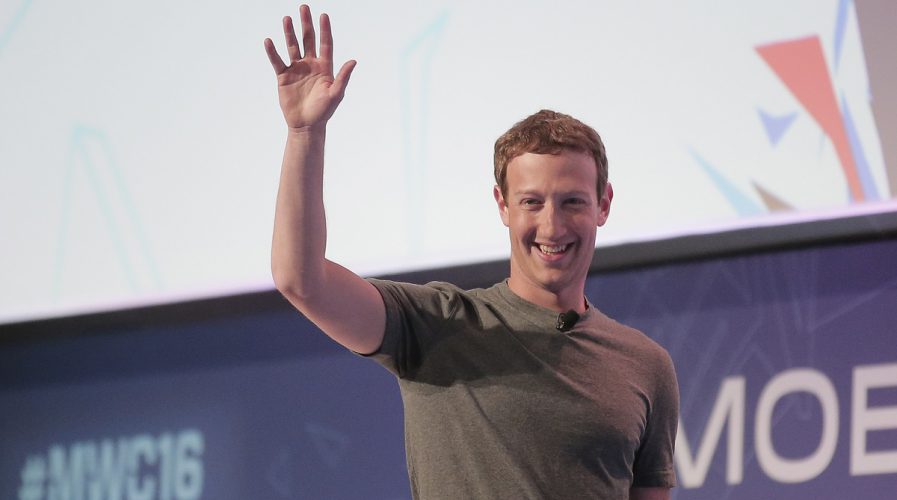
Facebook CEO Mark Zuckerberg announced that the company would be pivoting to video. Pic: AP
Facebook has been mistakenly giving advertisers inflated video metrics since 2014
COMPANIES that rely on videos to advertise on Facebook have been receiving inflated metrics for the past two years due to “erroneous” miscalculations by the company, a mistake that may have affected how much businesses spend on advertising via the social media platform.
Facebook wrote in a post on its advertiser help center web page several weeks ago explaining how it calculated the Average Duration of Video Viewed – but tried to play down news of the miscalculations. The error was also not indicated in the headline of the post, which read: “How is the ‘Average Duration of Video Viewed’ calculated?”
According to the underwhelming post, the metric was artificially inflated because it only factored in video views in which people watched for more than three seconds.
According to a letter by ad-buying agency Publicis Media, which was seen by the Wall Street Journal, this metric likely overestimated the average video-watching time by around 60 to 80 percent.
SEE ALSO: Fact vs Fiction: Facebook, Twitter join network to stop fake news spread
Facebook said: “We apologize for the inconvenience and we hope that these new metrics, in addition to other video metrics available in reporting will help you better evaluate your ad performance. This does not affect ads billing in any way.”
The new metrics have been renamed for clarity. ‘Video Average Watch Time’ refers to the total duration of a video divided by the total number of video plays, including plays that begin automatically and when clicked.
However, big ad buyers and marketers were not comforted by Facebook’s reassurance that the mistake has not affected ads billing. Publicis Media wrote in a scathing note to their clients saying the change was merely Facebook “coming up with new names for what they were meant to measure in the first place”.
People are hiring and firing talented journalists based on these metrics. Don't accept it. And don't get played. https://t.co/0Iu8ToVa5P
— Margarita Noriega (@margarita) September 22, 2016
Publicis added that the problem highlighted the need for third party firms for tagging and verification purposes on Facebook. The social media giant, along with Google, keep a very tight hold on their data and allow very few third-party firms access to their systems.
“Two years of reporting inflated performance numbers is unacceptable,” said Publicis.
READ MORE
- Ethical AI: The renewed importance of safeguarding data and customer privacy in Generative AI applications
- How Japan balances AI-driven opportunities with cybersecurity needs
- Deploying SASE: Benchmarking your approach
- Insurance everywhere all at once: the digital transformation of the APAC insurance industry
- Google parent Alphabet eyes HubSpot: A potential acquisition shaping the future of CRM
